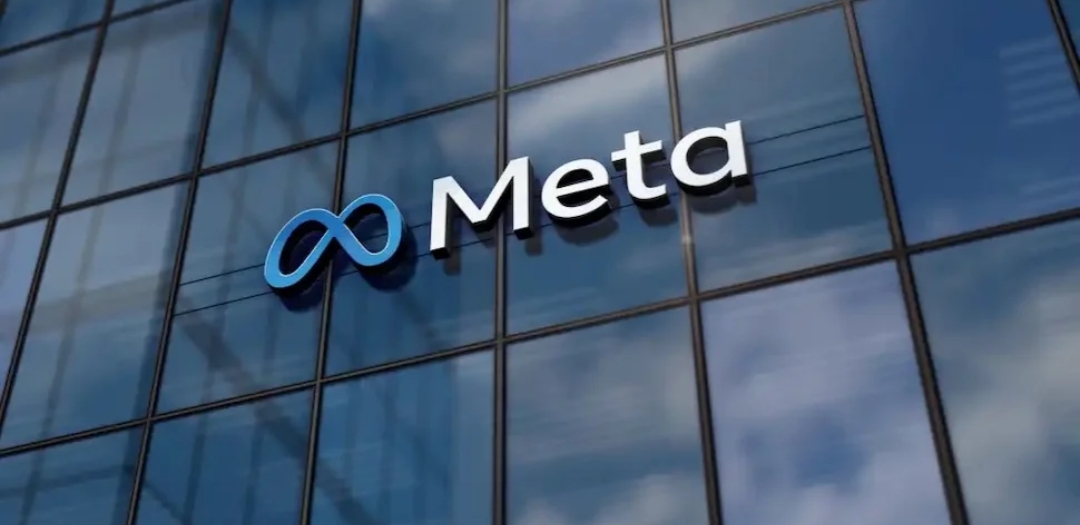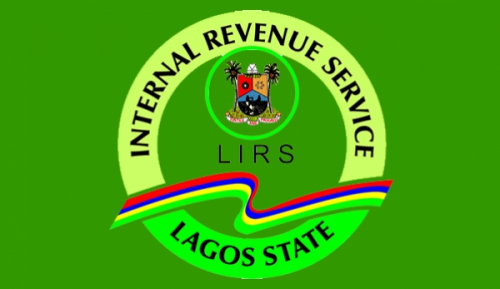Meta, Nigeria seek truce in landmark $32.8m data privacy battle

In a move that could redefine how global tech giants engage with African regulators, the Nigerian government and Meta Platforms Inc. have reached an out-of-court agreement to settle a $32.8 million fine imposed on the company by the Nigeria Data Protection Commission (NDPC).
The decision marks a turning point in Nigeria’s push to assert regulatory authority over Big Tech. It also offers a glimpse into how digital governance is evolving across the continent — with local regulators demanding greater accountability from platforms like Facebook, Instagram, and WhatsApp, all owned by Meta.
A First Under Nigeria’s Data Protection Law
The NDPC fine, announced in February 2025, was the first major penalty issued under the Nigeria Data Protection Act (NDPA), a landmark law that came into effect in 2023. The Act created the NDPC as an independent regulator, giving it broad powers to investigate, sanction, and compel compliance from both local and international firms handling Nigerians’ personal data.
At the time, the commission accused Meta of engaging in behavioural advertising — using users’ personal data to target them with ads — without obtaining their explicit consent. It also faulted the company for transferring Nigerians’ data outside the country without the commission’s approval.
The NDPC directed Meta to take several corrective actions: revise its privacy policies, conduct a data privacy impact assessment, ensure user consent for targeted advertising, and suspend all cross-border data transfers until authorised by the regulator.
Meta, however, pushed back strongly. The company argued that it had complied with “global privacy standards” and that the process leading to the fine was “procedurally flawed.” Its legal team said Meta had been denied a fair hearing, signalling the start of a potentially lengthy courtroom battle.
Turning Point in Court
That confrontation now appears to be softening. At the Federal High Court in Abuja on Friday, October 3, 2025, Meta’s lawyer, Fred Onwuobia, informed Justice James Omotosho that the company and the NDPC had reached an advanced stage in their discussions.
“Delivering a judgment at this stage could derail ongoing negotiations,” Onwuobia said, requesting that the court grant both sides time to finalise the terms of the settlement.
Counsel to the NDPC, Adeola Adedipe, confirmed the position, noting that both parties were “making progress” toward an agreement.
In response, Justice Omotosho adjourned the case to October 31, 2025, either for adoption of the settlement or for delivery of judgment.
While details of the proposed agreement have not been made public, multiple legal experts say the move reflects a pragmatic approach by both sides. “The NDPC wants compliance, not confrontation,” said one Abuja-based lawyer familiar with the proceedings. “And Meta, knowing Nigeria is its largest African market, wants to avoid reputational damage and regulatory hostility.”
A Pattern of Regulatory Heat
This is not Meta’s first run-in with Nigerian regulators. In fact, the company has spent much of the past two years defending itself on multiple fronts.
In 2024, the Federal Competition and Consumer Protection Commission (FCCPC) slammed Meta with a $220 million fine for alleged anti-competitive practices. The company denied wrongdoing and warned that the penalty could undermine its ability to operate in Nigeria.
The same year, the Advertising Regulatory Council of Nigeria (ARCON) issued a $37.5 million fine, accusing Meta of violating national advertising laws by publishing and distributing digital ads without proper registration and oversight. Both disputes remain unresolved.
For observers, the pattern is clear: Nigeria is tightening its grip on global tech platforms that have long operated in loosely regulated digital spaces.
“Meta’s decision to settle with the NDPC shows a shift in tone,” said a Lagos-based ICT policy analyst. “It’s a signal that they’re choosing diplomacy over defiance — and that’s important for both sides.”
Nigeria’s Digital Awakening
Behind the scenes, the Meta case is part of a larger story — one about Nigeria’s ambition to become a global player in digital governance.
When the Nigeria Data Protection Act (NDPA) was signed into law in June 2023, it aligned the country’s framework with international standards such as the European Union’s General Data Protection Regulation (GDPR). The GDPR has become the global benchmark for privacy protection, and under it, tech giants like Meta and Google have faced billions of dollars in fines in Europe for similar breaches involving user consent and data transfers.
For Nigeria, adopting such a framework was both symbolic and strategic. It signalled that Africa’s largest economy was no longer content with being a passive consumer of global technology — it wanted to shape the rules.
“The NDPC has made it clear that the era of unregulated data collection is over,” said a senior official at the commission. “If you process Nigerian data, you must play by Nigerian rules.”
The Meta fine — the largest so far under the NDPA — was a statement of intent. Its resolution will now serve as a test case for how Nigeria enforces compliance without stifling innovation.
Data Protection as Economic Policy
The government’s assertiveness is not just about privacy; it’s about economics. In 2024, Nigeria’s digital economy contributed nearly 18 per cent to GDP, powered by fintech, telecommunications, and digital services. Officials believe that strong data protection rules will attract more investment by fostering trust among consumers and global partners.
“Data governance is fast becoming a pillar of economic policy,” said another ICT governance expert. “If Nigerians can trust that their information is safe, they will engage more confidently in online transactions, which strengthens the entire digital ecosystem.”
But the move toward tighter regulation has also raised concerns about enforcement capacity. The NDPC, though empowered by law, is still building its institutional strength — recruiting staff, drafting guidelines, and developing its investigative tools.
“The commission is learning as it goes,” said a Lagos-based lawyer specialising in tech law. “But what’s encouraging is the clarity of its mission — to protect citizens while keeping Nigeria open for innovation.”
Big Tech’s Balancing Act
For Meta, the stakes in Nigeria are enormous. The company counts more than 40 million Facebook users in Nigeria alone, alongside millions of Instagram and WhatsApp users — making it one of its biggest markets globally.
The company’s leadership has long recognised Africa’s potential. In 2022, Meta launched initiatives such as Facebook Connectivity and Express Wi-Fi to expand access across the continent. But its troubles with regulators reflect the growing pains of a market where public expectations — and political will — have evolved.
The settlement with the NDPC could help Meta stabilise its operations and rebuild trust with Nigerian authorities. However, analysts caution that it will need to go beyond legal compliance to demonstrate genuine respect for local rules.
“Meta will have to localise its approach — not just its products,” said a media consultant in Abuja. “That means transparent data handling, clear consent mechanisms, and ongoing engagement with Nigerian regulators.”
Nigeria’s assertive stance mirrors a broader global trend. Across Europe, the United States, and India, regulators are reigning in Big Tech with new privacy, competition, and content moderation laws. Africa is now joining that wave.
South Africa’s Protection of Personal Information Act (POPIA) and Kenya’s Data Protection Act have already led to enforcement actions against international firms. Ghana, Rwanda, and Egypt are drafting similar laws.
Nigeria’s advantage lies in its scale — a population of over 200 million and a thriving tech ecosystem. How it balances enforcement with innovation could influence how other African countries regulate their digital economies.
“This settlement isn’t just about Nigeria,” said a Nairobi-based data rights advocate. “It’s a continental moment. If Nigeria can show that strong regulation and innovation can coexist, it sets a model for Africa.”
The Road Ahead
As both Meta and the NDPC edge closer to finalising their settlement, questions remain about what it will mean in practice. Will Meta pay part or all of the $32.8 million fine? Will it agree to stronger privacy audits or local data storage requirements? Neither side has disclosed details, but insiders suggest that compliance commitments will likely form part of the deal.
Beyond the fine, the outcome will test the credibility of Nigeria’s new digital institutions. If the NDPC can enforce its rules while maintaining dialogue with global firms, it could become one of Africa’s most influential regulators.
Meta, meanwhile, still faces unresolved cases with the FCCPC and ARCON. The results of those disputes could determine its long-term future in the Nigerian market.
For now, both sides appear keen to avoid confrontation. The NDPC has described its approach as “firm but fair,” while Meta has signalled readiness to “work collaboratively with regulators to improve user trust and compliance.”
Justice Omotosho will make the next move on October 31, 2025, when the court reconvenes to either adopt the terms of the settlement or issue a ruling.
Whatever the outcome, the Meta-NDPC case marks a milestone in Nigeria’s journey toward digital sovereignty. For years, global tech platforms operated with little oversight in Africa. That era is ending.
Nigeria’s message is clear: data has value, and its protection is non-negotiable.
As the country asserts its place in the global conversation on privacy, the Meta settlement could well become the precedent that defines Africa’s next chapter in the digital age — one where innovation thrives, but accountability reigns.










